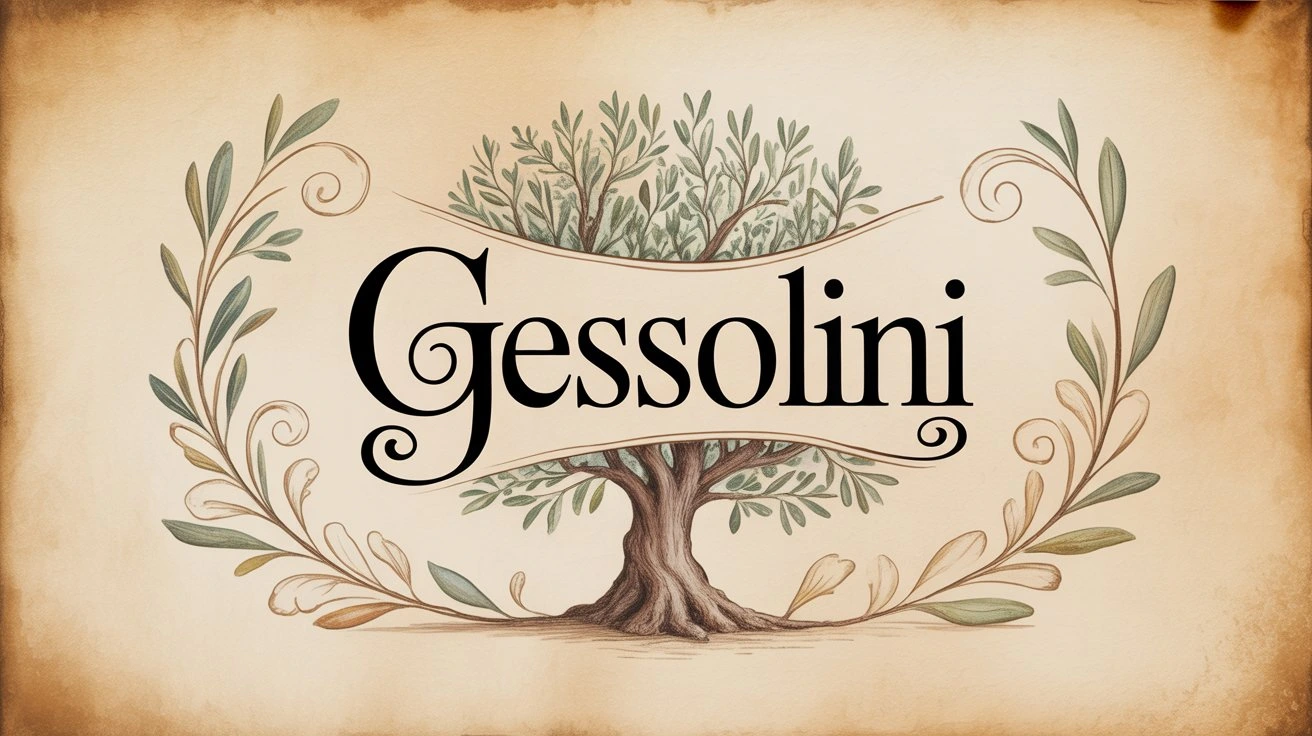The word gessolini has attracted curiosity among people trying to understand its roots, cultural significance, and modern interpretations. While it may not be a term that everyone is familiar with, those who search for it often have an intent to uncover its origin, its symbolic meaning, and how it connects to broader cultural or historical narratives. To satisfy this intent, we need to explore this heritage from different angles, ranging from its background to its relevance today.
At its heart, the surname represents more than just a word. It carries with it an echo of history, an association with identity, and sometimes even an artistic or linguistic flavor that connects past traditions with present-day curiosity. Understanding gessolini is not just about knowing a definition—it’s about appreciating the story behind the term.
The Origin and Definition of Gessolini
This name is often associated with Italian roots, both linguistically and culturally. The suffix “-ini” hints at Italian influence, where it is typically used to form diminutives or plural nouns. This indicates that the word might have been used to describe something in a smaller, collective, or affectionate sense.
The surname itself resonates with a sense of family heritage or artistic expression. In various regions, identifiers like this emerged as markers tied to families, places, or professions. Language evolves, and surnames often carried hidden meanings that spoke about geography, trade, or even personal traits of those who bore them. Thus, gessolini can be considered a linguistic marker that reflects cultural roots.
Historical Context of Gessolini
When studying history, names often tell more than they first reveal. This particular one may be traced back to certain Italian communities where surnames were influenced by either geography or craftsmanship. In historical Italy, it was common for surnames to carry descriptive power, sometimes referencing a family’s work with plaster (gesso in Italian) or other related trades.
During the Middle Ages and Renaissance, surnames not only identified individuals but also tied them to reputations and legacies. In that sense, this name might have represented families engaged in artistic trades or land-based occupations. The historical context opens the door to understanding the deeper social identity tied to the name.
Cultural Significance of Gessolini
Culturally, the surname symbolizes heritage. Italian culture is known for its deep respect for family ties, surnames, and traditions, and names like this become a vessel for cultural identity. Carrying such a name often connected individuals to a larger collective memory of craftsmanship, artistic endeavors, or familial pride.
Over time, as migration spread Italian surnames across Europe and even to the Americas, identifiers like this traveled with families, adapting to new lands but preserving their linguistic and cultural essence. This cultural significance reminds us that surnames are not just random—they embody generations of stories.
Modern Interpretations of Gessolini
Today, the word has taken on multiple interpretations. For some, it is a family name that still identifies lineages around the world. For others, it represents a connection to Italian linguistic traditions. In modern contexts, such names can even be embraced artistically, used as brand names, literary references, or symbolic markers of heritage.
The digital age has also breathed new life into old words. A surname like this may appear in online family research forums, ancestry websites, or artistic projects that aim to keep cultural roots alive. In that way, gessolini has evolved beyond its historical origins into a versatile term that carries heritage into the present.
The Benefits of Understanding Gessolini
Exploring the meaning of this name has several benefits. First, it helps individuals with the surname better connect with their heritage, reinforcing a sense of belonging. Second, it contributes to cultural preservation by keeping alive the linguistic richness of Italian names. Third, it sparks curiosity, inspiring researchers, writers, and historians to dig deeper into traditions that might otherwise be forgotten.
In education, such explorations foster appreciation of cultural diversity and language evolution. For those engaged in genealogical research, the name can be a key that unlocks unknown branches of family trees, allowing descendants to understand where they come from.
Challenges in Understanding Gessolini
Despite its charm, researching this surname presents challenges. Historical records are often fragmented, especially in rural Italian communities where documentation was not always maintained. Furthermore, surnames sometimes underwent changes due to migration, with families modifying spellings to adapt to new languages and societies.
This means that the name might appear in various forms in old records, making genealogical research more complex. Another challenge lies in interpretation—without concrete documentation, linking the surname to specific professions or locations may rely heavily on speculation. Yet, even these challenges underscore the importance of preserving names and exploring their meanings.
Real-World Examples of Gessolini
One of the most striking aspects of this heritage is how it lives on in people’s lives today. Families carrying the name have been identified in Italy, Europe, and immigrant communities in North America. In some cases, the surname appears in cultural and artistic projects, from literature to digital archives, symbolizing continuity across generations.
For instance, online genealogy communities often discuss such surnames to trace roots back to Italian villages. In literature, names like this may be used to add authenticity and flavor to characters, grounding them in real-world cultural heritage. These examples show how gessolini is not just a relic of the past—it remains alive in modern contexts.
Step-by-Step Guide to Tracing Gessolini Heritage
Tracing the heritage of a surname like this can be done through a systematic approach. Begin by collecting family documents such as birth certificates, marriage records, or old photographs. These often contain valuable hints about ancestral roots.
Next, explore online genealogy platforms that allow users to search by surname. Cross-referencing these records with immigration documents can help identify when families carrying the surname moved to new countries. Finally, connecting with cultural or historical societies in Italy can provide local insights, revealing the exact regions where the name was most prominent.
Gessolini and Linguistic Roots
The linguistic dimension of this surname is indeed fascinating. In fact, it is possibly derived from the word “gesso,” meaning plaster or chalk, and therefore the name may point toward artistic or craftsmanship traditions. Moreover, Italian surnames frequently preserved linguistic ties to professions, and as such, gessolini fits perfectly into this pattern.
Furthermore, the ending “-ini” typically signifies a plural or diminutive form, which could consequently imply “the family of gesso workers” or “little gesso.” As a result, this linguistic link reveals how names preserved not just identity but also professional heritage across generations.
The Symbolic Value of Gessolini
Names like this carry symbolic weight beyond their literal meaning. They represent the persistence of memory across centuries, tying present generations to ancestors. For people with Italian heritage, such names often stand as symbols of endurance, resilience, and cultural pride.
Symbolically, gessolini may be viewed as a bridge between tradition and modernity, reminding us of the beauty of preserving heritage while adapting to new times.
The Global Spread of Gessolini
Migration played a key role in spreading surnames like this across the world. Italian families moved to different countries in search of opportunities, carrying their names and traditions with them. Today, one can find traces not only in Italy but also in parts of the United States, Canada, Argentina, and beyond.
This global spread also meant that the surname adapted in pronunciation and spelling, yet its essence remained. The survival of this heritage across continents demonstrates how names endure even in the face of cultural assimilation.
Gessolini in Art and Literature
Art and literature often reflect cultural heritage, and this surname can be found in such contexts as a name that lends authenticity and depth to narratives. Writers and artists sometimes use it to ground their work in Italian tradition, evoking themes of family, identity, and resilience.
Such creative use ensures that even when historical records fade, the name continues to resonate with audiences, preserving its symbolic meaning through storytelling.
<h2>FAQs about Gessolini
What does gessolini mean?
It is often seen as an Italian surname, potentially
linked to the word “gesso,” meaning plaster or chalk, and may have originally described a profession or family heritage.
Is gessolini a common surname?
No, this name is relatively rare compared to other Italian surnames, which adds to
its uniqueness and cultural interest.
Where can I trace the origins of gessolini?
>> The origins can be traced through Italian civil records, church archives, and online genealogy databases that preserve immigration and family history.
Why is understanding gessolini important?
It helps preserve cultural identity, enriches genealogical research, and strengthens connections to Italian linguistic and historical traditions.
Has the surname gessolini changed over time?
>> Yes, like many surnames, it may have experienced variations in spelling and pronunciation due to migration and adaptation to different languages.
Can gessolini be used in modern contexts?
Absolutely. Beyond being a family name, the term can also be embraced in literature, art, and even branding, symbolizing heritage and authenticity.
You might also like to read about Uncuymaza
Conclusion
<span style=”font-weight: 400;”>Gessolini is more than a surname—it is a story of heritage, migration, identity, and resilience. From its linguistic roots in Italian culture to its symbolic presence in modern contexts, it represents the continuity of memory across generations. For those seeking to understand their heritage, this name opens the door to a world of history and meaning that connects families to their past.
Exploring names like gessolini is not only about genealogy—it is about appreciating the richness of human identity. If you are curious about your own cultural roots, let this surname inspire you to embark on that journey of discovery.



